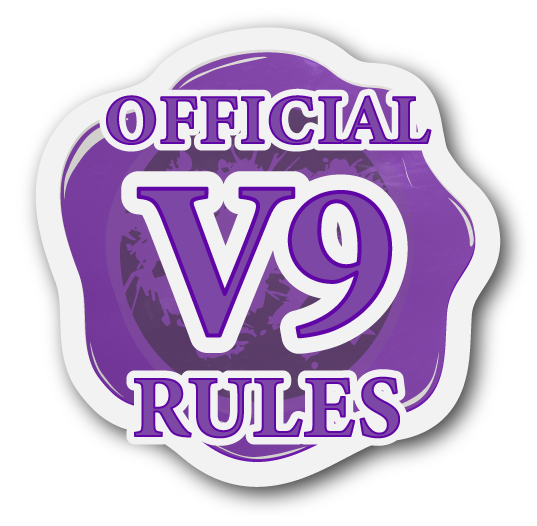V9: Best Practices
From AmtWiki
This page is part of the Official Amtgard V9 Alpha-Playtest Rulebook.
- The Amtwiki is the official home and primary source for Amtgard V9 Rules as of February 25, 2023.
- These rules are currently in Open Alpha Playtest. See the Playtest Disclaimer for more details.
- To learn more about Amtgard V9 Development, please visit Amtgard.com.
- To view the current Amtgard V8 ruleset, please see the Amtgard V8 Rulebook.
Best Practices for Resolving Issues
In a free-form game like Amtgard there are bound to be interactions and situations that come up that were not imagined or considered by the developers. It is understandably impossible for them to have accounted for every potential interpretation of the rules that may arise.
With that in mind, please consider the following as you apply the rules in this book during live gameplay. This section is especially useful for our Rules Authorities and Game Organizers who will often be required to make judgment calls on these matters.
- Amtgard requires cooperation, honor, and fair play from all participants. Keeping the tenets of the Honor System in mind is a solid first step towards untangling any situation you may come across.
- Imperfection and honest mistakes will inevitably occur. Human error should be expected and played through in good faith to the best of everyone’s ability. Don't punish the occasional honest mistake, especially if everyone involved is going along with it.
- For Reeves: If an error involves a lack of knowledge, show compassion and offer the correct information. If not, offer a warning and encourage the player to self-regulate. Do your best to acknowledge and recognize them when they succeed at correcting themselves. If an issue becomes a recurring or egregious then further action should be taken to prevent it from spoiling the experience for others.
- Read the rules thoroughly and consider the bigger picture. The more familiar you are with the rules, the better equipped you will be to handle situations and interactions that are not explicitly covered. Rules may give one impression when read in a vacuum, but make sense when viewed within the larger context of the game. When possible, use the spirit of the rule to guide your interpretation of the letter of the rule.
- If a specific rule contradicts a general rule, the specific rule should be favored. Abilities, magic items, and custom rules may allow players to do things that the general rules say they cannot. When this occurs, these more specific rules should always be seen as exceptions regardless of whether or not it is explicitly addressed in the general rule.
- Use common sense and follow the guide of Safety, Fairness, Flow, and Fun when determining how to navigate an ambiguous situation.
- Safety of all members should always be the top priority.
- Fairness is about ensuring a decision in line with common sense and the spirit of the rule.
- Flow is about ensuring a decision is easy to execute and doesn’t needlessly encumber gameplay.
- Fun is about considering a decision's effect on the overall enjoyment of all participants.
- Discourage confusion when possible, especially anything that could misrepresent one game mechanic for another, such as a sword that looks like a shield; a player casting a helpful spell at an enemy in an aggressive way to scare them; or someone pretending to be affected by a state to gain the element of surprise. Amtgard gameplay can often be very difficult to track even when everything is represented accurately, so deliberate deceit and misrepresentation of the mechanics of play should never be encouraged or supported by Rules Authorities
- The rules only do what they say they do. Even though the game mechanics are presented with engaging and thematic names, they do not have additional powers beyond what is explicitly stated within the rules. For example, the ability called Fireball cannot light up a room or set someone on fire. With that in mind, inside the bounds of a Roleplay activity this type of thematic extrapolation may be encouraged, but only with permission from the Roleplay Organizer.
- If a term is not defined anywhere in this rulebook, the most commonly accepted definition of the term should be applied. If multiple definitions exist, use the one that makes the most sense.
- Keep Calm. Be Kind. It is important to be self-aware and personally accountable. Both players and reeves must work to resolve issues calmly and kindly without becoming over-reactive, dismissive, or condescending. If you feel yourself getting frustrated, take a step back or excuse yourself until you can address the matter with a cool head.
Rules Authorities Reeve · Head Reeve · Game Organizer · Equipment Inspector · Kingdom-Appointed Authorities · Best Practices · Discussing Rules During Live Gameplay
